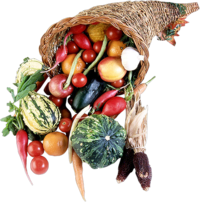Twelve Tips to Reduce Your Risk of Colorectal Cancer

Colon cancer, or, more accurately colorectal cancer, includes cancerous growths in the colon, rectum and appendix. It is the third most common form of cancer and the second leading cause of death among cancers in the Western world. Colorectal cancer surpasses breast and prostate cancers as a leading cause of cancer deaths in both men and women.
And the key point is that with early screening and a few simple dietary modifications, you can dramatically reduce your risk of getting it.
These are the 12 Tips to Slash Your Risk of Colorectal Cancer
- Receive regular colorectal cancer screenings beginning at age 50 if you are at normal risk
- If you are at higher risk due to a personal or family history of colorectal cancer, other cancers or inflammatory bowel disease have a discussion with your health care provider about screenings before age 50
- Eat between 25 and 30 grams of fiber each day from fruits, vegetables, whole grain breads and cereals, nuts, and beans
- Eat a low-fat diet: colorectal cancer has been associated with diets high in saturated fat, particularly fat from red meat
- Eat foods with folate, such as leafy green vegetables
- Try to drink at least 80 fluid ounces of pure water a day unless you have a medical reason for not doing so
- Drink alcohol in moderation: 2 units of alcohol or less each day
- If you smoke, here is another good reason for quitting. Alcohol and tobacco in combination are linked to colorectal cancer and other gastrointestinal cancers
- Exercise for at least 20 minutes three to four days a week. Moderate exercise such as walking, gardening or climbing stairs may help reduce your risk
- If you get any persistent symptoms such as blood in the stool, a change in bowel habits, weight loss, narrower-than-usual stools, abdominal pains or other gastrointestinal complaints, it is essential to report them to your health care provider
- Maintain a healthy weight. Obesity may increase the risk of colorectal cancer
- Maintain a good intake of calcium and vitamin D: this combination has been shown to reduce the risk of colorectal cancer
For more information, I recommend visiting the Web site of the American Cancer Society.
I keep their details in the “Resources” section on the left hand side of this blog.






